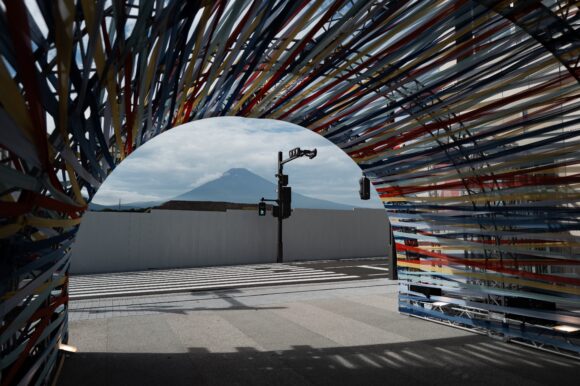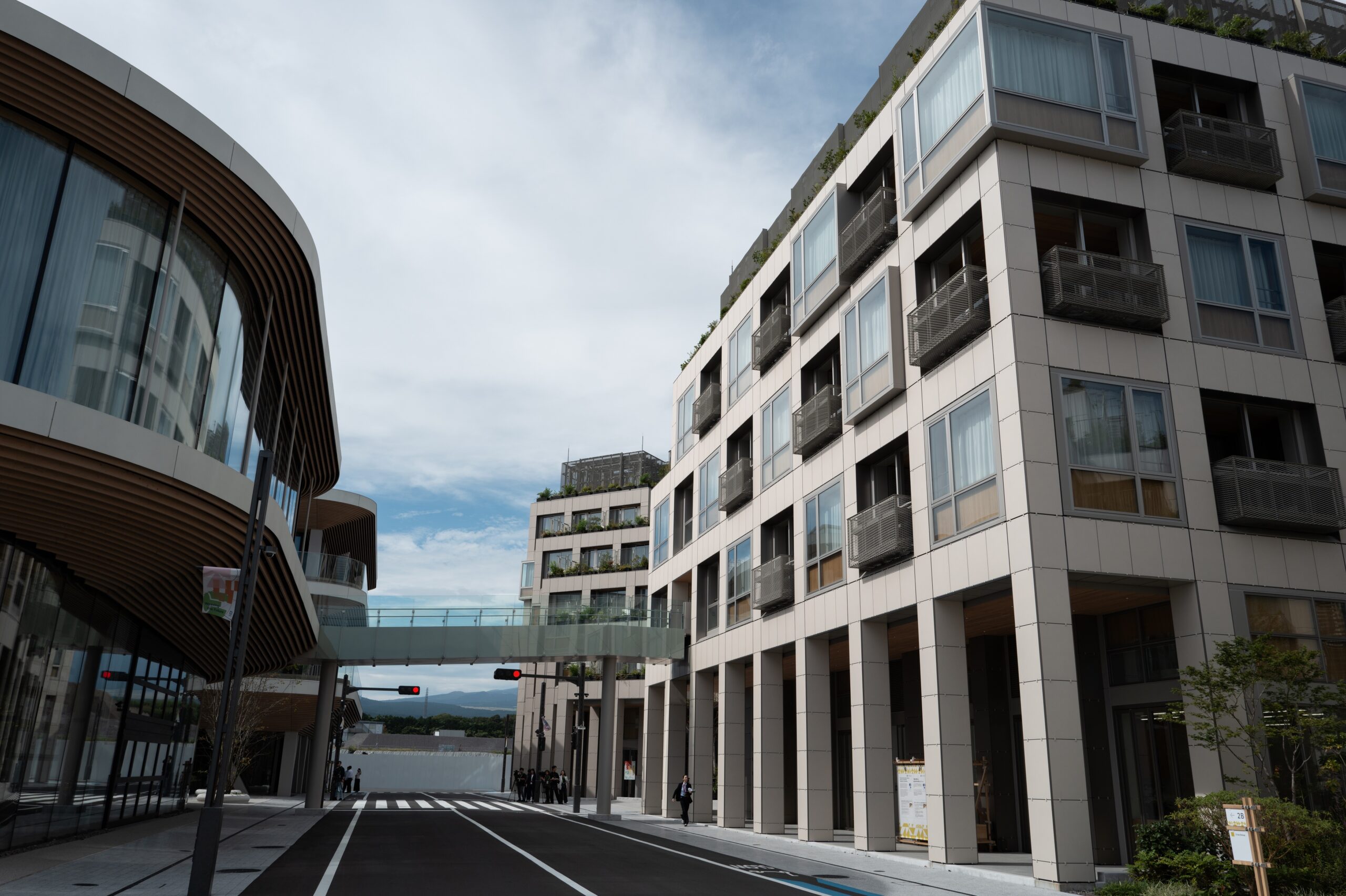Toyota Motor Corp. opened the doors to the first phase of Woven City, its experimental town meant to act as an incubator for technologies from autonomous driving to artificial intelligence.
Woven City aims to serve as a testbed for the innovative technology the world’s No. 1 automaker needs to regain its competitive edge in an industry dominated by battery-powered cars with sophisticated software.
Still, it was unclear during a Thursday tour for media and stakeholders how the city might fit that requirement.
Few people were seen walking the spotless pathways in the 47,000-square-meter (505,903-square-foot) complex in Shizuoka, Japan near Mount Fuji. The town is dotted with a dozen or so buildings, including modern apartments where employees will eventually live, according to the company.

Demonstrations included electric scooters, automated robots that deliver groceries or park cars, and a nursery school where children will be taught basic English.
The town’s second phase will encompass nearly quadruple the land, at 182,000 square meters, and include a test course. Around 2,000 residents are expected to move into the complex by this stage, the company said.
“I honestly don’t know when this will produce results,” said Woven City Executive Vice President Daisuke Toyoda, the son of Chairman Akio Toyoda who plans to live in the town. “We could see unexpected results or output, or we might not.”
It could take five years before Toyota’s new technologies have a meaningful impact on its business, according to Julie Boote, an automotive analyst at London-based research firm Pelham Smithers Associates Ltd.
In some ways, Woven City represents a crossroads for Toyota.
Toyota and other legacy carmakers have fallen behind EV brands led by Elon Musk’s Tesla Inc. and China’s BYD Co. Japanese automakers have a long history in manufacturing, but software has emerged as a major weakness that could make or break the companies as the automobile industry shifts to electric vehicles.
“This certainly won’t create business today, tomorrow or even the day after — the point is, not doing anything is no longer an option,” said Bloomberg Intelligence senior auto analyst Tatsuo Yoshida.
Plans to build a “living laboratory” were teased five years ago by then-Chief Executive Officer Akio Toyoda. Earlier this year, he said Woven City might not turn a profit but that it’s about creating a fully sustainable city to showcase next-generation technologies.
“Will this Woven City make Toyota any money? Well, maybe not,” Akio Toyoda said in January at a press conference at CES in Las Vegas. “As global citizens, I believe Toyota has a responsibility to invest in our collective future.”
Woven, a wholly-owned subsidiary of Toyota led by CEO Hajime Kumabe, shifted its focus from research to product development in 2023. One of its key initiatives is a software platform and vehicle operating system called Arene, which it debuted in May in the popular crossover RAV4.
“Many of the projects covered at Woven City are interesting, but not likely to prove relevant in the longer-term,” Boote said. But, she added, the importance of Woven by Toyota itself “cannot be overstated, given that the future of the auto industry lies in automotive intelligence.”
Top photo: Woven City Photographer: Nicholas Takahashi/Bloomberg.
Copyright 2025 Bloomberg.

Want to stay up to date?
Get the latest insurance news
sent straight to your inbox.
